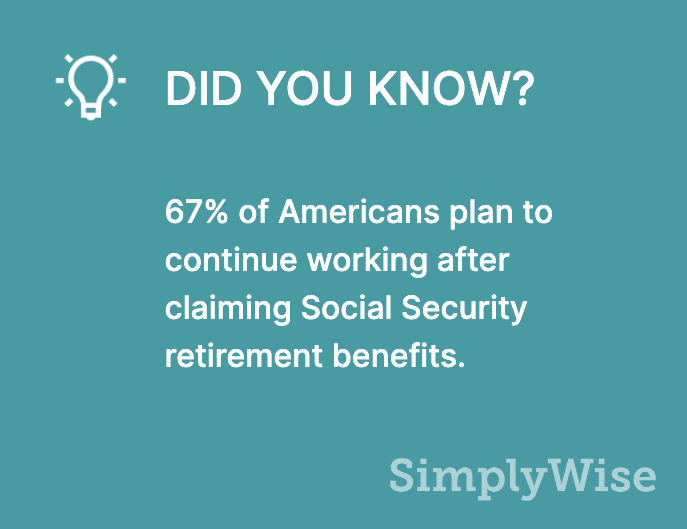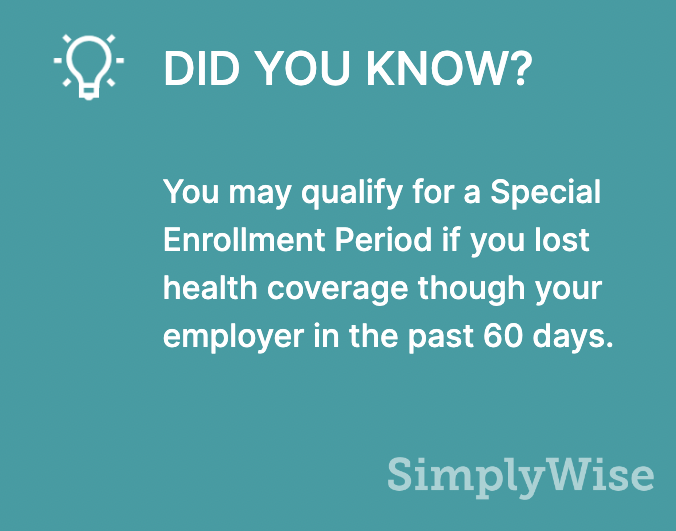
The COVID-19 pandemic has deeply impacted the global economy, and it’s being felt on a very personal level by millions who’ve lost their jobs, their businesses and their savings. But people at or near retirement age may be hit especially hard. If you are in this group — and especially if you’ve been recently laid off or furloughed — you may be struggling to figure out when or even if you may be able to retire.
We’ve pulled together some resources and action plans for many different economic scenarios for people who are retired or hope to be soon. Let’s start with Social Security benefits and how they may be affected.
The future of your Social Security benefits
The impact the pandemic will have on Social Security benefits really depends on when you will be claiming them.

Current retirees receiving Social Security benefits
Your benefits will not be impacted by the pandemic, now or in the future, unless Social Security funds are depleted more quickly than expected. Current projections indicate that the trust funds that disburse retirement, disability and other Social Security benefits will be depleted by 2035 without Congressional action.
Current retirees not receiving Social Security benefits
If you are eligible for Social Security retirement benefits (age 62 or older), you may want to consider taking them now to fill any gaps in your nest egg left by investment losses during the market downturn. It’s important to understand how your age will impact your benefits, though, as well as other forms of income.
Retirement age individuals who are still working
If you’re over age 62 and still working, it doesn’t mean you can’t take retirement benefits. Keep in mind, though, that Social Security may reduce the benefit amount it pays you based on your wages made from a job (or net profit if you’re self-employed) bonuses, commissions, and vacation pay. They do not count pensions, annuities, investment income, interest, or veterans or other government or military retirement benefits.
Near-retirees who are still employed
If you’re turning 60 this year, your Social Security benefits may be hit especially hard, according to a recent working paper for the Wharton Pension Research Council.
The author of that paper, Andrew Biggs, a former principal deputy commissioner of the Social Security Administration, and an American Enterprise Institute resident scholar, found that median income workers turning 60 this year will lose $2,511 annually. And that’s if they wait until the full retirement age of 67 to take their benefits. That’s a loss of $45,859 in total retirement benefits over an 18-year period.
On top of that, the Consumer Price Index (CPI) for 2020 will likely be low or even negative. That will result in no cost of living increase (COLA) for Social Security benefit recipients in 2021.
Depending on how the economy fares over the next couple of years and how protracted the impact of the coronavirus is on global markets, those turning 60 over the next few years may also be impacted, and for the same reasons.
Knowing your options is key to ensuring you maximize your benefit amount. As we explain in our guide to Social Security benefits, beneficiaries are rewarded with a larger monthly payment for every month they wait after turning 62 and until age 70.
Near-retirees who have been furloughed or laid off
If you are 55 or older and haven’t been furloughed or laid off, you may be wondering if you need to delay retirement due to the impact the pandemic has had on markets, your 401(k) and possibly even your future earning power.
You’re not alone. Even before the pandemic, more and more retirement-age workers in recent years have continued to work full- or part-time. In fact, a poll from The Associated Press-NORC Center for Public Affairs Research, found that 23% of workers said they don’t expect to stop working ever. And new statistics show that people above the age of 65 are already working at all-time high rates since record keeping began. The May 2020 Retirement Confidence Index found that 67% of people today plan to continue working in retirement.
Reviewing your investment accounts, your 401(k), any pension plans and your projected Social Security retirement benefits is an important first step in determining what steps you can take to shore up your savings and at what age it would be best to claim your Social Security benefits.
Other retirement funds & investments
Depending on your age and employment status, investment losses due to COVID-19 may impact your retirement significantly, or barely at all.

Review your plan & investments
While current retirees’ Social Security benefits won’t be negatively impacted by the pandemic, your personal investments may have taken a hit from the related market downturn. And while the market has made a surprising comeback, particularly in light of American political and social unrest, roughly two years of gains have been shaved off, meaning you could be worrying about how long your nest egg will last.
While you can’t control the markets, you can be strategic about your portfolio and your monthly income plan whether you are currently retired, nearing retirement or plan to work for many more years. Read our guide on how to stay smart with retirement savings during COVID-19.
Reviewing your investments and overall retirement plan with your financial advisor is a good idea if you have one. The folks at Fidelity offer the following advice:
- Look at cash before selling securities
- Reconsider Social Security if you aren’t already taking it
- Be strategic and tax smart if you do need to sell
Understand how withdrawals will work
Also, keep in mind that the CARES Act allows you to withdraw up to $100,000 from retirement accounts without paying the standard 10% penalty, regardless of your age. But, you can only do this if you have something called a “coronavirus related distribution.”
Here’s guidance from the IRS on how to take a coronavirus related distribution.

Get assistance paying bills.
Many people are hurting financially due to the pandemic. In fact, a recent survey found that 63% of Americans will need another round of stimulus within the coming couple of months.
Regardless of your retirement status, or even employment status, if you’ve been financially impacted by the pandemic, you may be eligible for relief regarding your monthly bills, including your auto, mortgage and rent payments.
Beyond the stimulus checks and business grants provided through the CARES Act, many utility companies, lenders and even private landlords are offering reduced or delayed payments. If you are struggling to pay your monthly bills, it’s important to get in front of the issue and reach out to the companies and individuals you may owe to discuss what your options are.
For example:
- Payments have been suspended for federal student loan borrowers until Sept. 30
- Many credit card companies are offering leniency when it comes to monthly payments
- Many mortgage lenders are offering forbearance or other types of relief for borrowers
The most important thing for you to do if you can’t make a payment is to get in touch with the company as soon as possible and work out an agreement.
Understand your health care options
Unless your insurance status has recently changed, COVID-19 shouldn’t have an impact on your health care coverage. That is true whether you are uninsured, have Medicare, a job-based plan or coverage through the health care marketplace.
If your coverage status has changed — especially if you lost an employer-based plan due to layoffs — you may be wondering what your coverage options are. According to HealthCare.gov:
- If you lost your job-based health plan: You may qualify for a Special Enrollment Period if you lost health coverage through your employer or the employer of a family member in the past 60 days OR you expect to lose coverage in the next 60 days, including if you lose health coverage through a parent or guardian because you’re no longer a dependent. Note: Losing coverage you have as a dependent doesn’t qualify you for a Special Enrollment Period if you voluntarily drop the coverage. You also don’t qualify if you or your family member loses coverage because you don’t pay your premium.
- If your employer reduced the hours you work and you’re enrolled in a Marketplace plan: Update your application immediately within 30 days to report any household income changes. You may qualify for more savings than you’re getting now. Learn how to report changes.
- If you were furloughed: In some situations depending on the status of your health coverage from your employer, you may qualify for a Special Enrollment Period. You may be eligible for a premium tax credit to help pay for Marketplace coverage too. Create an account or log in to start your Marketplace application to find out if you qualify.

- If you have COBRA continuation coverage:
- If you’re entitled to COBRA continuation coverage after you lost your job-based coverage, you may still qualify for a Special Enrollment Period due to loss of coverage. You have 60 days after your loss of pre-COBRA job-based coverage to enroll in Marketplace coverage. You may also qualify for premium tax credits if you end your COBRA continuation coverage.
- If you’re enrolled in COBRA continuation coverage, you may qualify for a Special Enrollment Period if your COBRA continuation coverage costs change because your former employer stopped contributing, so you have to pay full cost. Learn more about COBRA continuation coverage and the Marketplace.
- If you lost your job, but didn’t also lose health coverage, because your former job didn’t offer coverage: You generally won’t qualify for a Special Enrollment Period. By itself, a job loss (or a change in income) doesn’t make you eligible for a Special Enrollment Period to enroll in Marketplace coverage. See if you qualify for a Special Enrollment Period another way.
Stay safe & stay focused
With today’s uncertainty, it’s understandable to feel overwhelmed when it comes to thinking about the future. But as the COVID-19 pandemic has impacted the way we live our day-to-day lives, the way we think about Social Security and its place in our retirement is also having to shift. But to ensure your retirement and your personal security is protected, it’s now more important than ever to understand the changes happening with the SSA and what it means for your retirement.
Today, Social Security is operating at full capacity (despite SSA employees largely working from their homes) and the pandemic has not affected the typical dispersal of benefits. But if things continue, and as the SSA’s funds dwindle, the structure of Social Security payments could change dramatically.
For those currently on Social Security benefits, ensure you use trusted sources to get information about field office closings and re-openings, as well as any changes to benefits. Beware any fraudsters who may call with information about your stimulus check or Social Security benefits. When in doubt, hang up. And if you do decide to tap a retirement account, ensure you are educated about the tax implications.
For those eligible but not yet on Social Security – while we don’t necessarily recommend taking benefits earlier – this is a good time to consider how to maximize your benefits. That means understanding and calculating what your options are for earned benefits, spousal benefits and survivor benefits. One of the best ways to see what you’re owed is to use an online Social Security calculator.
Finally, for everyone today, remember to stay positive and take care of yourself. This time at home is the perfect moment to educate yourself about your Social Security options and plan for your future. Staying informed, aware, and empathetic is critical to making it through the crisis and keeping your financial life on track.